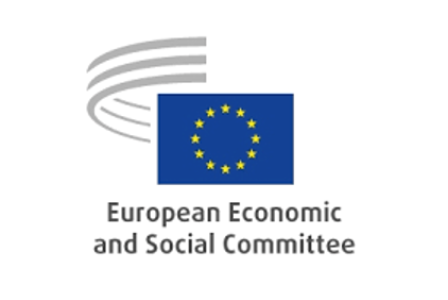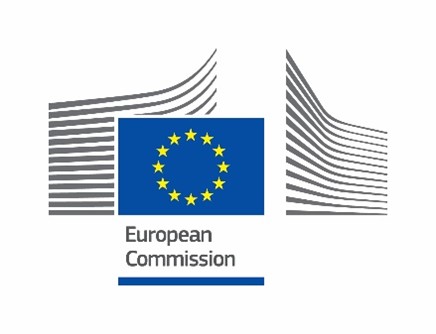News
10 October 2025
Regenerative agriculture: A new chapter in EU green farming policy
News
10 October 2025
1. Healthy, balanced and sustainable diets for all European consumers
2. Prevention and reduction of food loss and waste
3. A climate - neutral food chain in Europe by 2050
+4 more
Login / create an account to be able to react
-
122

The European Economic and Social Committee (EESC) recently became the first official EU body to explicitly recognise regenerative agriculture as a core strategy for transforming Europe’s food and farming systems.
Editorial team
European Economic and Social Committee
Topics
Albania
Armenia
Austria
Belgium
Bosnia and Herzegovina
Bulgaria
Croatia
Cyprus
Czechia
Denmark
Estonia
EU-27
Finland
France
Georgia
Germany
Greece
Hungary
Iceland
Ireland
Italy
Kosovo
Latvia
Liechtenstein
Lithuania
Luxembourg
Malta
Moldova
Montenegro
Netherlands
North Macedonia
Norway
Poland
Portugal
Romania
Serbia
Slovakia
Slovenia
Spain
Sweden
Switzerland
Türkiye
Ukraine
Other
Academic / Research and VET Institutions
Business Support Organisation
Company with 250 or more employees
Cluster Organisations
Consumer Organisations
Cultural and Heritage Organisations
Destination Management & Marketing Organisations
EU Institutions
Financial Institutions and Investors
Industry Associations and Chambers of Commerce
International Organisations
Local Authorities
Media / Journalist Organisations
National authorities
Networks and Federations / Confederations
NGOs / Non-profits
Notified Bodies
Regional Authorities
SMEs (a company with less than 250 employees)
Social Economy Entity
Trade Unions
Other
-
CoC aspirational objectives
-
-
1. Healthy, balanced and sustainable diets for all European consumers
-
2. Prevention and reduction of food loss and waste
-
3. A climate - neutral food chain in Europe by 2050
-
4. An optimised circular and resource-efficient food chain in Europe
-
5. Sustained, inclusive and sustainable economic growth, employment and decent work for all
-
6. Sustainable value creation in the European food supply chain through partnership
-
7. Sustainable sourcing in food supply chains
-
Share
The article titled “Regenerative agriculture: A new chapter in EU green farming policy", released on 20 August 2025, highlights the European Economic and Social Committee’s recognition of regenerative agriculture as a key pillar for the EU’s transition to sustainable food systems.
The article further stresses the importance of policy integration, support mechanisms, and market development. Regenerative principles should be embedded in the post-2027 Common Agricultural Policy, the EU Soil Health and Nature Restoration laws, and national rural strategies. Transition support—through funding, insurance, fair pricing, and advisory services—is crucial, especially for small farms and young farmers. Consumer demand, labelling, public procurement, and responsible sourcing by retailers are also needed to ensure uptake. Ultimately, regenerative agriculture is framed as both an environmental solution and a socio-economic opportunity, offering resilience, fairness, and a renewed role for farmers while positioning the EU as a global leader in sustainable farming.
For farmers’ organisations and cooperatives, the relevant points are:
Recognition of regenerative agriculture as complementary to organic and agroecological models, not a replacement.
Key practices (cover crops, low/no tillage, agroforestry, rotational grazing) and outcome-based indicators (soil carbon, biodiversity, water retention).
Transition support mechanisms: funding, simplified regulations, advisory services, risk-mitigation tools (insurance, transition funds).
Focus on young farmers, small farms, and those on marginal lands, with improved land access and fair pricing.
For retailers and food companies, the relevant points are:
The role of procurement and sourcing strategies in creating demand for regenerative agriculture products.
Importance of long-term contracts, fair pricing, and recognition of environmental and social value in supply chains.
Development of consumer awareness, product labelling, and public procurement policies to differentiate regenerative products in the market.
Target Audience
The target audience is primarily EU policy-makers, agricultural stakeholders, and sustainability professionals—including officials working on the Common Agricultural Policy, soil and biodiversity legislation, and rural development strategies.
It also addresses farmers’ organisations, cooperatives, and advisory services that would implement regenerative practices, as well as retailers, food companies, and consumer advocacy groups involved in creating demand and market incentives.
Author(s):
Stoyan Tchoukanov
Comments (0)
See also
Q&A: What the ‘controversial’ GWP* methane metric means for farming emissions
- Categories
- 2. Prevention and reduction of food loss and waste 3. A climate - neutral food chain in Europe by 2050 4. An optimised circular and resource-efficient food chain in Europe +3 more
Agri-Food Code list of signatories
- Categories
- 2. Prevention and reduction of food loss and waste 3. A climate - neutral food chain in Europe by 2050 4. An optimised circular and resource-efficient food chain in Europe +3 more
New members to the Code of Conduct
- Categories
- 2. Prevention and reduction of food loss and waste 3. A climate - neutral food chain in Europe by 2050 4. An optimised circular and resource-efficient food chain in Europe +3 more



